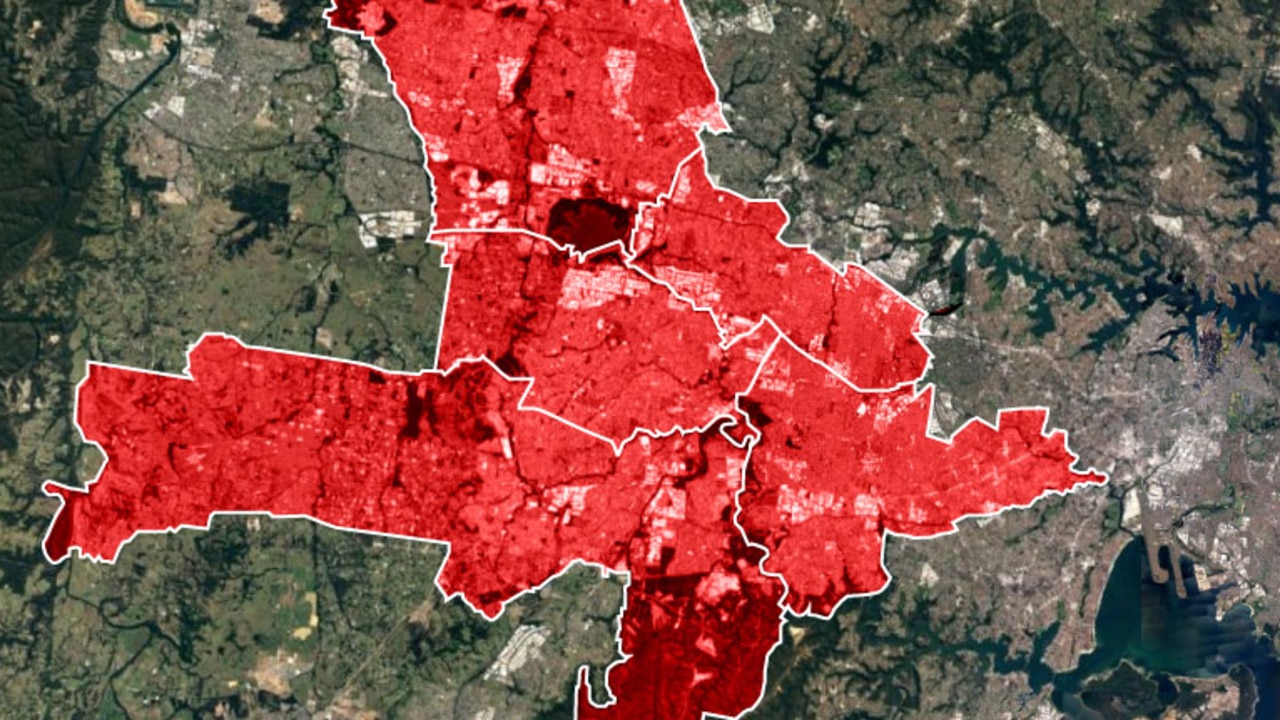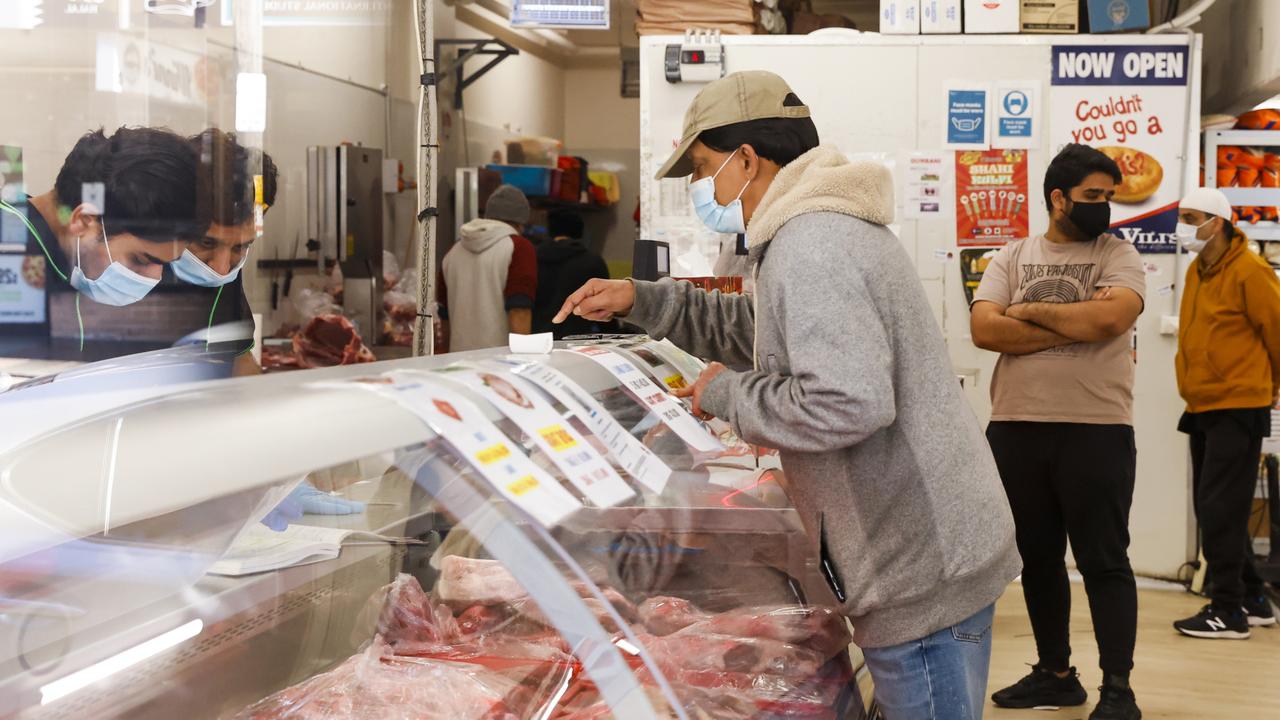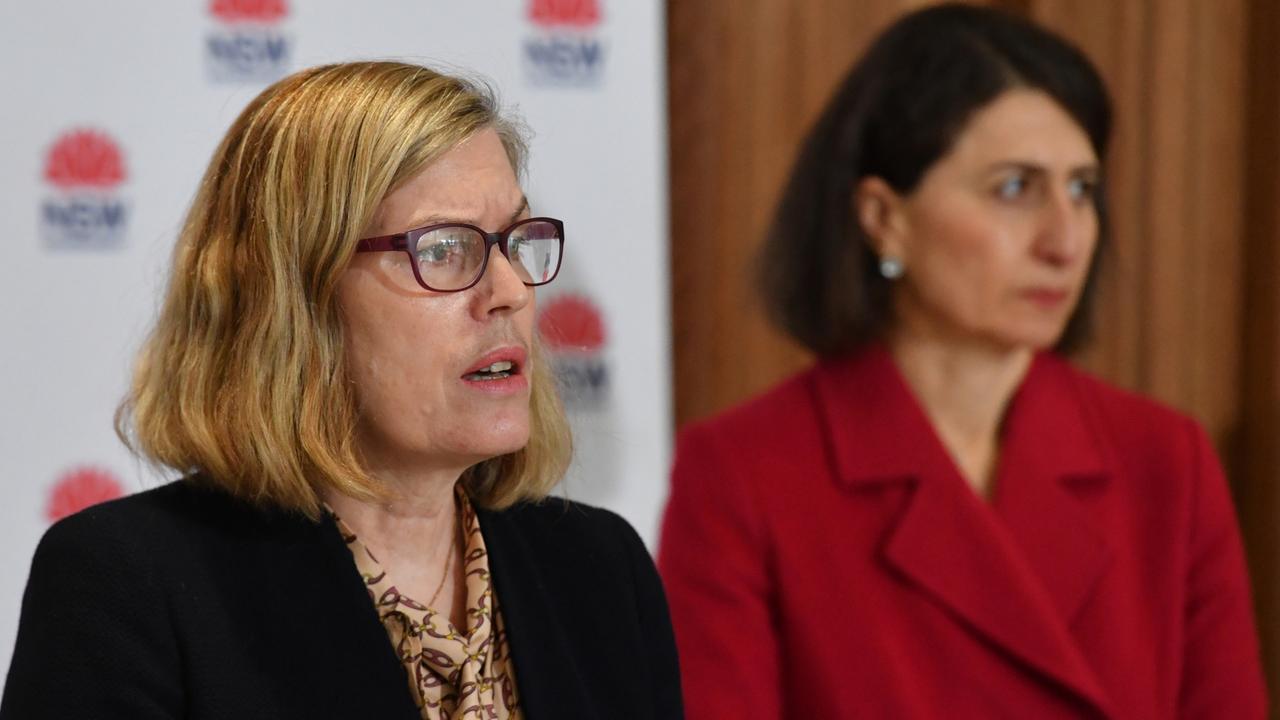How virus spread could become Sydney’s worst fears realised
Covid spread in five Sydney areas pose a threat to the rest of the city, the state and even Australia. This is why the risk is so high.
Sydney’s worst fears have been realised as Covid-19 continues to spread in southwestern and western parts of the city — home to 1.4 million residents.
The areas house a large number of the city’s essential workers, who “actually put food on the table for people in Sydney”, stocking supermarket shelves and working in food processing jobs.
It’s not possible to stop these workers from leaving their homes, unlike the others living in five local government areas who are now prevented from leaving their suburbs for work.
Residents of Fairfield, Canterbury-Bankstown, Liverpool, Cumberland and Blacktown are now not allowed to leave the area for work unless they are health workers or on a list of authorised workers.
The virus has continued to spread despite workers in three of these areas (Fairfield, Canterbury-Bankstown and Liverpool) being stopped from leaving almost a week ago.
Essential workers in these areas are the only people who are able to travel freely for work across the city, which puts them most at risk of catching Covid and spreading it to others.
Adding to their vulnerability is the fact that the population of southwestern and western Sydney is younger than in many other areas and so less people are vaccinated as they are not yet eligible.
Infectious diseases expert Professor Peter Collignon of Australian National University said if workers give infections to each other at work, in places such as their tea rooms or hospital handover rooms, this would keep outbreaks going.
This was seen during Victoria’s outbreak last winter, Prof Collignon said, when most of the spread was occurring between essential workers, who then brought the virus back to their families.
RELATED: Restrictions Gladys Berejiklian would never agree to

“You’ve got a large population that I presume has a lower percentage of vaccination because of their ages, who are moving around more, and are part of larger family groups,” Prof Collignon said.
“All these things have a chance of spreading the virus, added to that is the language issues.”
NSW authorities say the situation in these areas is now a “national emergency” and they will focus their efforts on stopping the spread in the five local government areas (LGAs).
NSW Premier Gladys Berejiklian called on the National Cabinet to urgently redirect extra vaccine doses to these residents, including for the mass vaccination of workers aged under 40 years old.
“The population of southwestern, western Sydney is younger than the average population, and we need to consider that,” Ms Berejiklian said.
She noted many of these younger people had not had the chance to get vaccinated, and there was a need for more first doses of Pfizer.
However, when it came to vaccines, Prof Collignon said authorities had to be careful not to overdo it.

“I do think we need vaccinations of at-risk and younger groups but it takes a couple of weeks to see any effect, even after the first dose,” he said.
Prof Collignon said people getting Pfizer would not be fully protected for at least five weeks.
“This is a medium to long term situation, I agree we should increase supply in NSW relative to others, but we also have to take into account that we don’t know what will happen somewhere else.
“We’ve got to make sure the rest of Australia has it as well.”
Prof Collignon echoed the comments of NSW authorities in saying that people should get vaccinated with AstraZeneca.
“If you are over the age of 40, I really think AstraZeneca is reasonable, particularly in NSW given what’s happening,” he said.
During the press conference, NSW Chief Health Officer Kerry Chant and Ms Berejiklian both noted they had been vaccinated with AstraZeneca despite being younger than 60 years old.
“Anyone over 40, go and get vaccinated. Anyone under 40, consider it,” Dr Chant said.
“If I was living in some of those (five LGA) areas, I would certainly be having AstraZeneca.”
‘You don’t have the luxury of separating people’
Many of the young people in the five LGAs are workers that “keep Sydney working 24/7”, Dr Chant told reporters on Friday.
“The group of workers that keep society going is this group of workers in the 20 to 49 year old age group in southwestern Sydney.
“Every day, people from those LGAs have to go out to work, to keep our city going.”
She said these workers “actually put food on the table for people in Sydney”, undertaking critical food production, as well as other work to keep society functioning.
“They’re the people that keep supermarkets stocked, they’re people working in food processing and other settings.”
However, she said these workers were acquiring the virus and then passing it on to their families.
She said household sizes in the impacted areas were quite large because many of the families were multi-generational. There also continued to be some intermixing of households.
“As soon as one case gets into a household, everyone’s infected and that’s because of the Delta virus,” she said.
“You are infectious even before you’ve got symptoms so you just don’t have that luxury of separating people, they’re already been exposing them.”
RELATED: Covid chief’s surprising lockdown claim

State borders won’t contain the virus
In response to the crisis, NSW will be asking for extra doses of the vaccine to be directed to these areas. Ms Berejiklian that this was necessary to keep the state safe but also the rest of the country.
“There is no doubt that if we want to contain this virus, and stop it seeping out to other parts of Greater Sydney, stop it impacting our freedom and our economy, but also stop it spreading into other states, we need to have a discussion about refocusing the national vaccination strategy," she said.
Ms Berejiklian said the virus could seep through borders regardless of how hard a border other states put up.
“It is very difficult to contain the virus within any boundary, because there’s critical work, there’s distribution,” she said.
“There are compassionate grounds where you have to allow family members, especially when there’s a very serious family situation to move around.”
Asked whether she would be asking other states to give up their allocations of the Pfizer vaccine, Ms Berejiklian said she thought it was a conversation that needed to be had a National Cabinet.
“This is not just a challenge for NSW but a challenge for the nation,” she told reporters.
However, in the wake of NSW’s appeal, Victoria instead called for a “ring of steel” around Sydney while South Australia said it would block NSW’s request.
On Friday, NSW announced people in two more local government areas (LGAs) would not be allowed to leave their suburbs for as Covid cases rose again to a record 136 infections.
Six people have died from Covid-19 in the state since the latest outbreak, with authorities announcing an 89-year-old man as the latest fatality.
charis.chang@news.com.au | @charischang2




